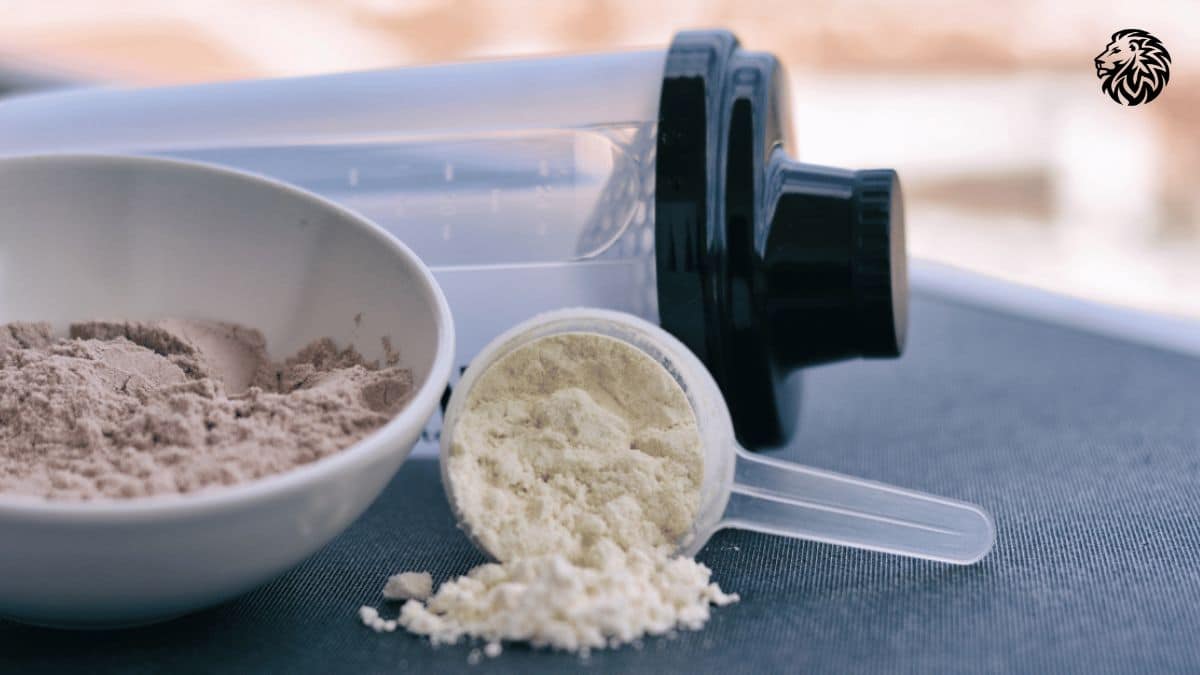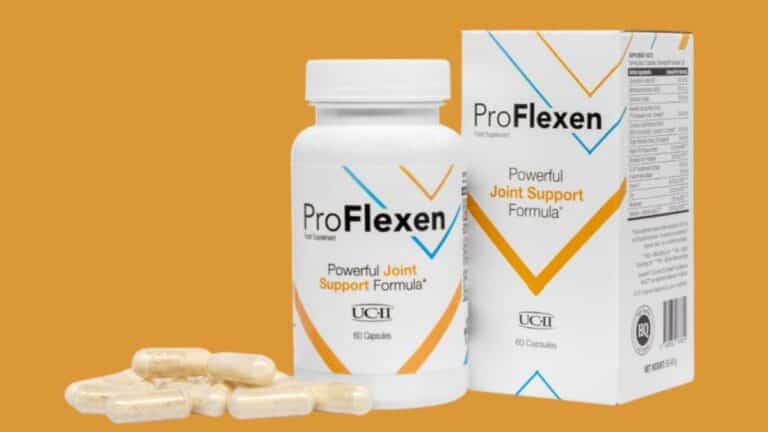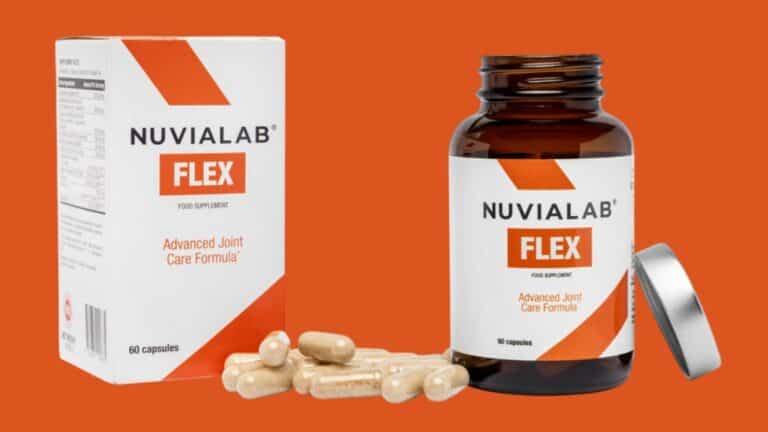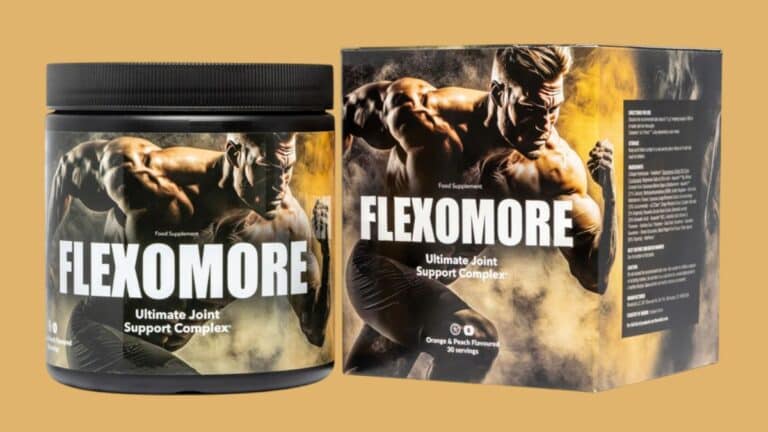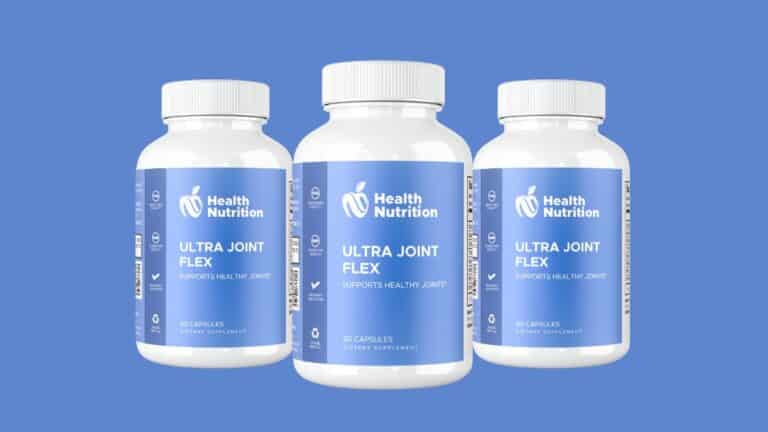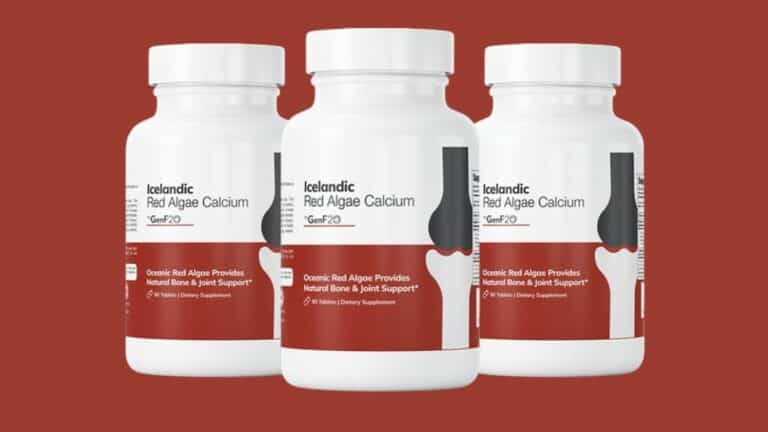Protein Needs for Seniors
So, you’re getting a bit older and you might be thinking about your health a bit more than you used to. One thing that’s super important as you age is keeping an eye on how much protein you’re getting. It’s like the magic ingredient that helps you stay strong and keep your muscles in tip-top shape.
Importance of Protein Intake
Let’s dive into why protein matters so much. As you get older, your muscles naturally start to shrink a bit, which isn’t great, but it is common. This shrinkage is called sarcopenia, and it affects a bunch of folks over 80. Imagine your body being a bit like a house that needs regular maintenance — protein’s like the bricks that keep everything sturdy. Eating enough of it helps your muscles fix themselves, grow and keep you bouncing back after exercise.
Protein isn’t just for building muscles; it has other important jobs too. It:
- Boosts your immune system
- Keeps your skin and hair lookin’ good
- Helps your wounds heal quicker
- Looks after your bones
Curious about how protein helps build muscle? Check out our protein powder for building muscle page to learn more.
Recommended Daily Protein Intake
Here’s the scoop on how much protein you need. As you get older, you might need more than the younger folks. Most older adults should aim for 1 to 1.5 grams of protein for every kilogram they weigh each day. If you’re dealing with illness or doing a lot of physical activity, you might need even more — up to 2 grams per kilogram.
| Age Group | Protein Intake Recommendation (gm/kg/day) |
|---|---|
| Adults | 0.8 – 1.2 |
| Seniors (general) | 1.0 – 1.5 |
| Seniors (illness) | Up to 2.0 |
The tricky part? Many seniors aren’t hitting these numbers. More than 75% of folks over 70 are not getting enough protein, eating less than 1.2 gm/kg daily. As you age, under-nutrition risks go up, with up to 45% of older people in the community, and nearly all in care facilities, not getting what they need.
Want to know more about where to get the best protein? Check out our section on protein powder without artificial sweeteners or see what’s available in the natural food aisle.
Protein Supplements for Seniors
Hey there! Making sure you grab enough protein becomes more like a must-do as you get older. Protein powders can really come in handy, offering a bunch of perks while making it a breeze to meet those daily protein marks.
Benefits of Protein Supplements
Protein powders aren’t just a trend—they’re super helpful for older folks for a few good reasons. They help in beefing up that muscle mass, boosting strength, and just making everything work smoother in the muscle department, especially if you’re not getting enough nutrients or dealing with muscle loss as you age. Plus, protein supplements tend to be easier on the stomach, which is great news for balancing those hormones and digestive enzymes (Silver Cuisine).
Key Benefits of Protein Supplements for Seniors:
- Bump Up Muscle Mass: Especially helpful if you’re short on nutrients
- Boost Strength: Get those muscles working at their best
- Easy on the Stomach: Softer on the tummy compared to meat
- Hormone Helper: Good for keeping hormones in check
- Keeps You Feeling Full: Helps stave off those snack attacks
Choosing the Right Protein Powder
Picking a protein powder isn’t rocket science, but you wanna make it count. Here’s what to look for:
Protein Content
Older folks could benefit from protein supplements having around 30-45 grams per serving to give the right kick to muscle building, aiming for at least two servings of 30 grams each day.
| Protein Type | Ideal Content per Serving (g) |
|---|---|
| Whey Protein | 30 – 45 |
| Plant-Based Protein | 25 – 35 |
| Soy Protein | 30 – 40 |
Bioavailability
Whey protein is a superstar when it comes to absorption and helping those muscles grow due to its leucine content (PubMed). If you’re more into plants, soy or pea protein are solid picks.
- Whey Protein: Packed with leucine; awesome for muscle growth
- Soy Protein Isolate: Solid choice for plant-minded folks with a nice protein punch
- Pea Protein Concentrate: Another go-to for plant lovers or those with certain dietary needs
Necessity of Additives
You might wanna avoid powders with fake stuff. Check out our protein powder without artificial sweeteners page for more info.
Important Internal Links
Get more scoop and tailor choices for different needs right here:
- Whey protein powder benefits
- Protein powder for weight loss
- Best protein powder for building muscle
- Protein powder for women
- Protein powder for keto diet
Before shaking up your diet, be sure to chat with a healthcare pro. They’ll help make sure that new supplement fits just right with your health goals and needs.
Whey Protein for Muscle Health
Looking after your muscles as you get older ain’t just for bodybuilders—it’s crucial for everyone. Adding whey protein to your meals is a smart move for keeping those muscles in check. Let’s dig into how whey protein can boost muscle health and why it’s your aging buddy.
Effectiveness of Whey Protein
Alright, whey protein’s got some serious creds. It’s a game-changer for older folks who find their strength slipping away. This protein is loaded with leucine, an amino acid that plays a starring role in muscle growth and repair. Leucine gives your muscles the wake-up call they need to stay strong, making whey protein a favorite for seniors looking to pump up their muscle game.
| Benefit of Whey Protein | Why It Matters |
|---|---|
| Chock-full of Leucine | Kicks off muscle-building and repair |
| Quick on Its Feet | Fast absorption means muscle nutrients on demand |
| Complete Package | Packs all the amino acids your muscles crave |
Impact on Muscle Synthesis
Keeping those muscles from turning into Jell-O is all about fueling them right. Whey protein steps up by jazzing up muscle protein synthesis, which means you’re more likely to sport sturdy muscles and keep moving with ease. Studies show that seniors who marry protein intake with a bit of resistance training achieve the best results in muscle mojo.
Then there’s sarcopenia—the muscle thief that targets nearly half of people over 80. It’s a tough gig, leading to severe muscle shedding. You can fight back by upping your protein intake. Whey protein is a rock-solid choice to fend off this muscle menace.
| Group & Situation | Percentage Struggling |
|---|---|
| Elderly at Home (Lacking Nutrition) | Up to 45% |
| Seniors in Care Facilities (Lacking Nutrition) | Up to 100% |
| Folks 80+ (Dealing with Sarcopenia) | Nearly 50% |
Getting a handle on what whey protein brings to the table can help in picking the right protein gear for the elders. When high-protein snacks are part of your daily scene through trusty pals like whey, you’re doing your muscles a solid favor, making aging just another number. (whey protein powder perks).
Plant-Based Protein Options
Are you a senior thinking about adding some plant-based protein to your diet? Let’s chat about two popular picks: Soy Protein Isolate and Pea Protein Concentrate. Folks rave about both, each bringing its own bag of perks to the table.
Soy Protein Isolate
Pulled straight from soybeans, Soy Protein Isolate is famous for its top-notch protein quality. It’s got a full set of amino acids, so if you’re looking to swap out meat, this makes for a solid choice. Plus, its easy digestibility is a win-win for seniors as protein absorption tends to lag with age (PubMed Central).
Why Go for Soy Protein Isolate?
- All-Inclusive Amino Acids: Think of it as a one-stop shop for all essential amino acids.
- Goes Down Easy: Perfect for aging bodies that might be slowing down on the uptake.
- Flexible: Mix it into your smoothie, shake, or even get creative and cook with it!
| Protein Type | Protein Pizzazz (Quality Index) |
|---|---|
| Whey Protein | High |
| Soy Protein | High |
| Pea Protein | Moderate |
When searching for a powder, ditch the ones with fake sweeteners to keep it wholesome (sugar-free protein picks).
Pea Protein Concentrate
Pea Protein Concentrate is a fan-favorite too. Made from yellow peas, it’s a lifesaver for folks with lactose intolerance or who want to keep it purely vegan. While it may not score as high as soy on digestibility, bump up your intake and it’s still a quality protein source (PubMed Central).
What’s Cool About Pea Protein Concentrate?
- Gentle on the Tummy: A blessing if you’re dodging allergens or intolerances.
- Packed with Iron: Handy for keeping anemia at bay, especially important for seniors.
- Easy on the Gut: Doesn’t digest as perfectly as soy but still works like a charm!
| Protein Type | Iron Fund (mg per 100g) |
|---|---|
| Pea Protein | 5 |
| Soy Protein | 2 |
| Whey Protein | 0.5 |
Cranking up muscle building? Mixing up different protein sources might do the trick. For more muscle-maximizing intel, hop over to our chat on the best protein powder for muscle gains.
Whether it’s packed-full-of-quality soy or allergy-friendly, iron-rich pea, these protein powders are both standout choices for seniors. Picking the right fit depends on what you need in your diet and what tickles your fancy. Hungry for more? Get the scoop on dietary proteins that go down smooth in our senior-friendly protein talks.
Considerations for Protein Intake
Getting the hang of how much protein you need is pretty important, especially if you’re in the senior crowd. You gotta check out where you’re getting that protein and how well your body can soak it all up to keep yourself feeling tip-top.
Dietary Sources of Protein
Mixing up where you’re getting your protein from has some real perks, like helping you keep those muscles strong and staying healthy all over. Whether you’re munching on burgers or chowing down on tofu, both animal and plant-based grub offers the essential building blocks.
| Protein Source | Complete Protein | Example Foods |
|---|---|---|
| Animal-Based | Yup | Beef, Chicken, Pork, Fish, Eggs, Milk |
| Plant-Based | Sometimes | Tofu, Tempeh, Quinoa, Buckwheat |
Your body can’t whip up all the amino acids it needs on its own, so complete proteins, found in things like beef or eggs, are prime picks for older folks. Even plant pals like tofu and quinoa make the cut. Need some pointers on adding protein to your kitchen game? Peep our takes on protein powder for keto diet or protein powder for lactose intolerant eaters.
Protein Bioavailability in Seniors
How well your body snaps up protein is a big deal, especially if you’re clocking extra decades. It’s all about bioavailability, or how much of those amino acids you can actually use. Generally, meat and dairy take the crown here.
| Protein Source | Bioavailability |
|---|---|
| Whey Protein | High |
| Casein Protein | So-so |
| Soy Protein Isolate | High |
| Pea Protein Concentrate | Middling |
When comparing protein powders, whey is the all-star for keeping muscles beefy (So says our blog). It’s perfect for seniors wanting to bulk up a bit. But no worries if you’re dodging dairy—soy and pea protein are solid contenders as well.
Scooping up proteins that your bod can use efficiently can mean a world of difference for staying strong and healthy. Personal health is the name of the game, so get cozy with a doc when picking your protein pal. Dive deeper with our pointers on best protein powder for building muscle or meal replacement shakes.
For seniors, a good mix of high-quality proteins can be super helpful in keeping muscle mass up and staying healthy overall. Scout out different sources and choose the ones that make both your taste buds and your nutritional needs happy.
Safety and Rules of Protein Powders
Alright, let’s chat about protein powders. They can be a good boost to your diet, especially as you get older. But wait, it’s super important to know the ins and outs of how these supplements are kept safe and what rules they follow.
Rules Around Protein Supplements
In the United States, protein powders are lumped into the category of dietary supplements. What does this mean for you? Well, they don’t play by the same strict rules as, say, your morning cereal or the medications in your cabinet. The U.S. Food and Drug Administration (FDA) isn’t scrutinizing these powders as closely (Silver Sneakers). Because of this loose leash, the quality, safety, and honesty of labels can differ a lot between brands.
So, how can you tell which protein powder is safe? Look for brands that get a thumbs-up from third-party testers. These folks double-check what’s on the label and scan for nasties like heavy metals, BPA, and pesticides to make sure the powder’s good to go. Need help picking one? Check out our handy guide on finding protein powder without artificial sweeteners.
What to Watch Out For
Protein powders sound great, but they can come with a few gotchas, especially if you’re a senior. The Clean Label Project did some snooping and found many powders hiding not-so-nice stuff like lead, arsenic, cadmium, and mercury. Yikes, right? Some products even packed up to 25 times the allowed limit of BPA (Harvard Health Publishing).
| Ingredients You Don’t Want | What They Could Do to You |
|---|---|
| Heavy Metals (Lead, Arsenic, Cadmium, Mercury) | Not great—think cancer or other nasty issues |
| Bisphenol-A (BPA) | Messes with hormones, ups cancer risk |
| Pesticides | Can hurt your brain, maybe cause cancer |
And let’s be real, some protein powders are sneaky about adding sugars, loads of calories, or other chemicals you might want to avoid. This is even more of a problem if you’re dealing with diabetes or heart trouble. So, what should you do? Kathy McManus, a smart dietician from Brigham and Women’s Hospital, suggests only using these powders when you’re sure they’re safe and ideally with a pro guiding you (Harvard Health Publishing).
Before you start shaking up protein shakes, have a chat with your doctor or a dietitian. They can keep tabs on how it affects you and make sure it fits right into your daily eats. Want tips on mixing protein powder into your meals? Check out our piece on using protein powder for meal replacement.
Once you’re hip to the possible downsides and safety tips, you can make smarter picks that help keep you healthy as time ticks on. For some energy-boosting secrets, swing by and see our take on protein powder for energy.
